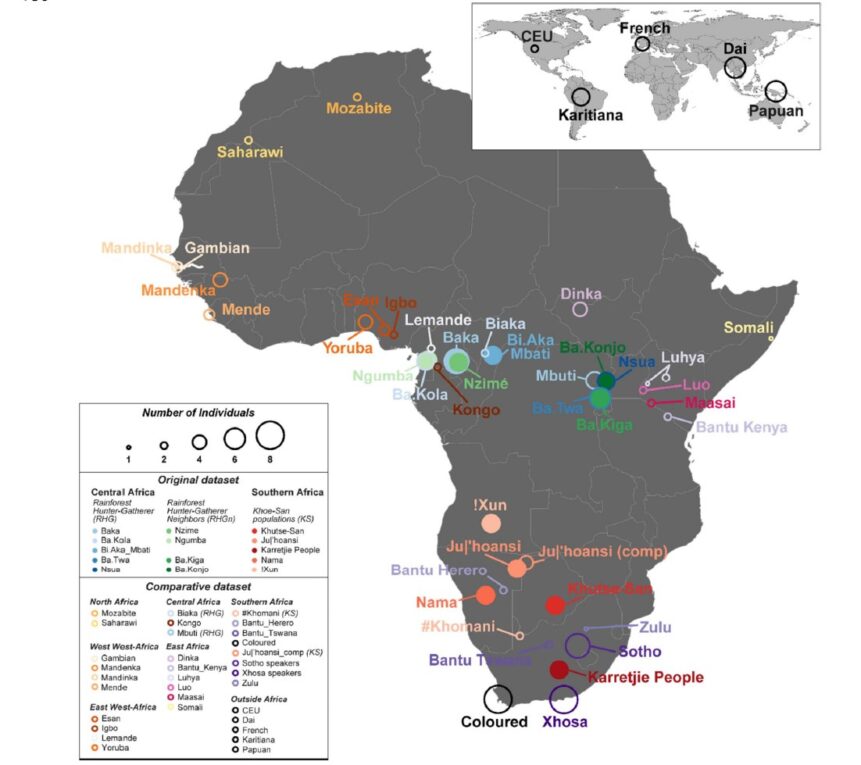



Gwenna, Per, Carina and Mattias are the co-authors of a new paper (prepress now) on Africa.
Abstract
The deep history of human evolution in Africa remains intensely debated with increasingly complex models being proposed. To investigate human evolutionary history in Africa, we sequenced and investigated 73 novel high-quality whole genomes from 14 Central and Southern African populations with diverse cultural practices. With extensive simulations and machine-learning Approximate Bayesian Computation inferences, we reconstruct jointly their complex history of divergences and migrations. We find vast genome-wide diversity within and among populations, often uncorrelated with geography and cultural practices. This shows the necessity to explicitly consider local genomic patterns, without merging samples indiscriminately into larger a priori categories to reconstruct human evolutionary histories. We find that tree-like population-histories with long periods of drift between short pulses of unidirectional gene-flow best explain the data, in contrast to continuous gene-flow. Without the need to invoke archaic admixture, the detailed patterns of genomic variation can be accurately fitted to a model where the lineage ancestral to Khoe-San populations diverged around 300,000 years ago from a lineage ancestral to rainforest hunter-gatherers and neighboring agriculturalists. Finally, throughout history, the short periods of gene-flow each coincide with epochs of major ecological and cultural changes in Sub-Saharan Africa.

